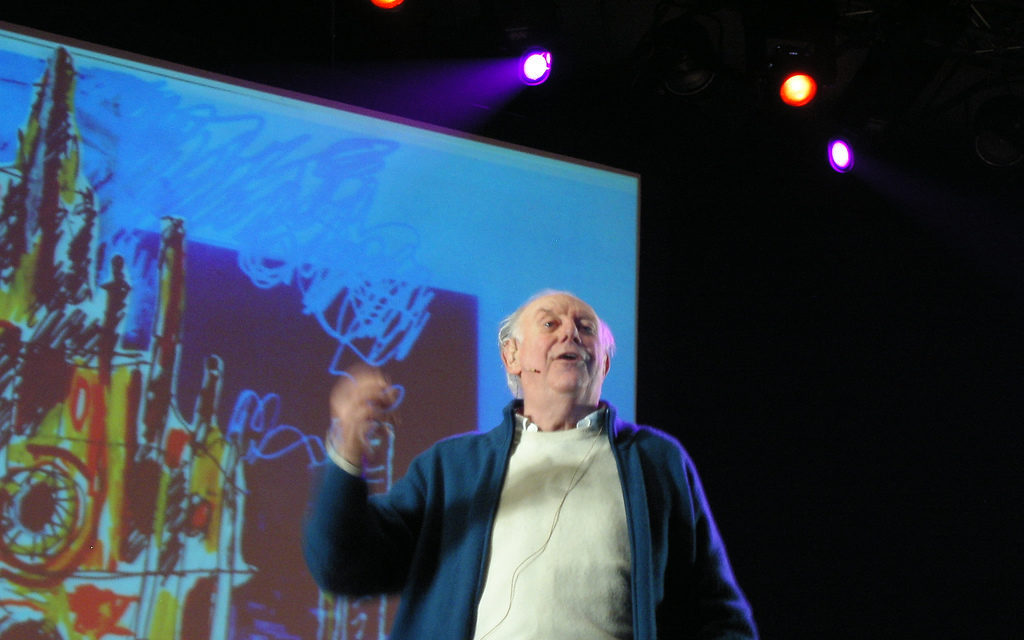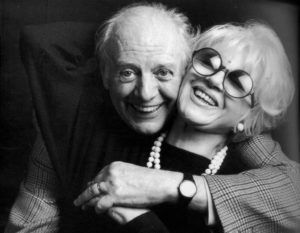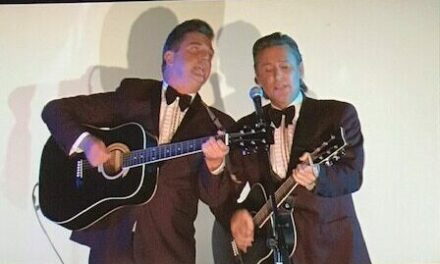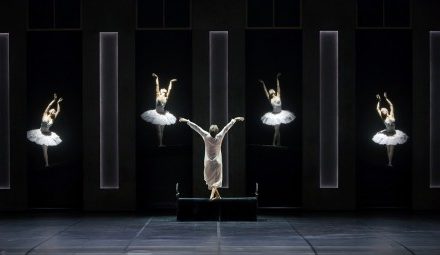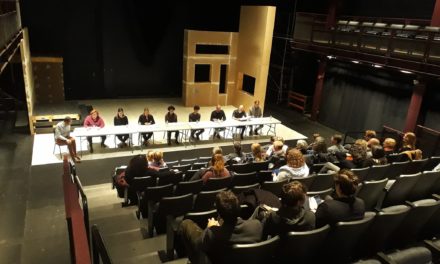On 13th October 2016, Dario Fo died in Milan at age 90. He was one of the most influential artists in world theatre and conquered this position with courage, hard work and the constant memory of his humble origins. He was an actor, singer, playwright, director, painter, and stage and costume designer. In particular, he was a contemporary heir of the medieval jesters and a lover of commedia dell’arte: from 1969, with his masterpiece Mistero Buffo (Comical Mystery), he demonstrated the vitality of improvisation as a technique for involving the audience.
He was a master of monologue, and used solo performance to reveal his extraordinary originality and humor. His facial expressiveness and gestures were basic elements in the narrative rhythm of his stories: he knew all the secrets of oral tradition, and his speech was open to a multitude of styles – from epic narration to political satire – daring the grotesque. His “popular” idea of theatre led him to work with a special attention to the social dimension: he was able to rouse public opinion, he fought against indolence and indifference, he was always in search of progress. In his cult of freedom, he knew censorship, but he continued to underline the contrasts and the differences between the classes.
For this reason, he avoided the official and classical forms of theatrical communication: in his innovative and personal manner, he presented historical events with the voice of poor and illiterate people, using his special grammelot – a funny mixture of Italian dialects and foreign languages, onomatopoeic sounds and vocal extensions – as a universal language. The global success of his theatre is underlined by the exceptional number of his performances all over the world, and by the translations of his books into more than 30 languages.
YouTube link: Dario Fo in Grammelot Blues
Dario Fo spent the greater part of his life and career with Franca Rame, who died in Milan on 29th May 2013 at age 83. Married to Fo in 1954, she was his complement: his leading actress, and the leading figure in his existence. In their total union of art and life, she also helped him in the writing of his plays. Moreover, she was the administrator and the organizer of the Fo-Rame Company.
On 9th October 1997, Dario Fo received the Nobel Prize in Literature: meeting the journalists, he said with emotion that Franca Rame was the winner with him. In Italy, he was the first winner after Eugenio Montale, in 1975, and, as a playwright, after Luigi Pirandello, in 1934. On 13th October 2016, a few hours after the announcement of Fo’s death came the notice that Bob Dylan had received the Nobel Prize in Literature.
YouTube link: Dario Fo & Franca Rame: A Nobel for Two
On 23rd March 2016, in celebration of his 90th birthday, the Musalab “Dario Fo–Franca Rame” was officially opened in Verona. It is a treasury of almost 60 years of theatrical life: manuscripts, books, articles, photos, posters, costumes, puppets, scene-paintings.
In many recent interviews, Dario Fo declared that he felt the lack of his beloved Franca, but also her presence everywhere. He did not bear the weight of her absence. But now, in the imaginary of the audience, they are together again for a great never-ending show
This post was written by the author in their personal capacity.The opinions expressed in this article are the author’s own and do not reflect the view of The Theatre Times, their staff or collaborators.
This post was written by Maria Pia Pagani.
The views expressed here belong to the author and do not necessarily reflect our views and opinions.

